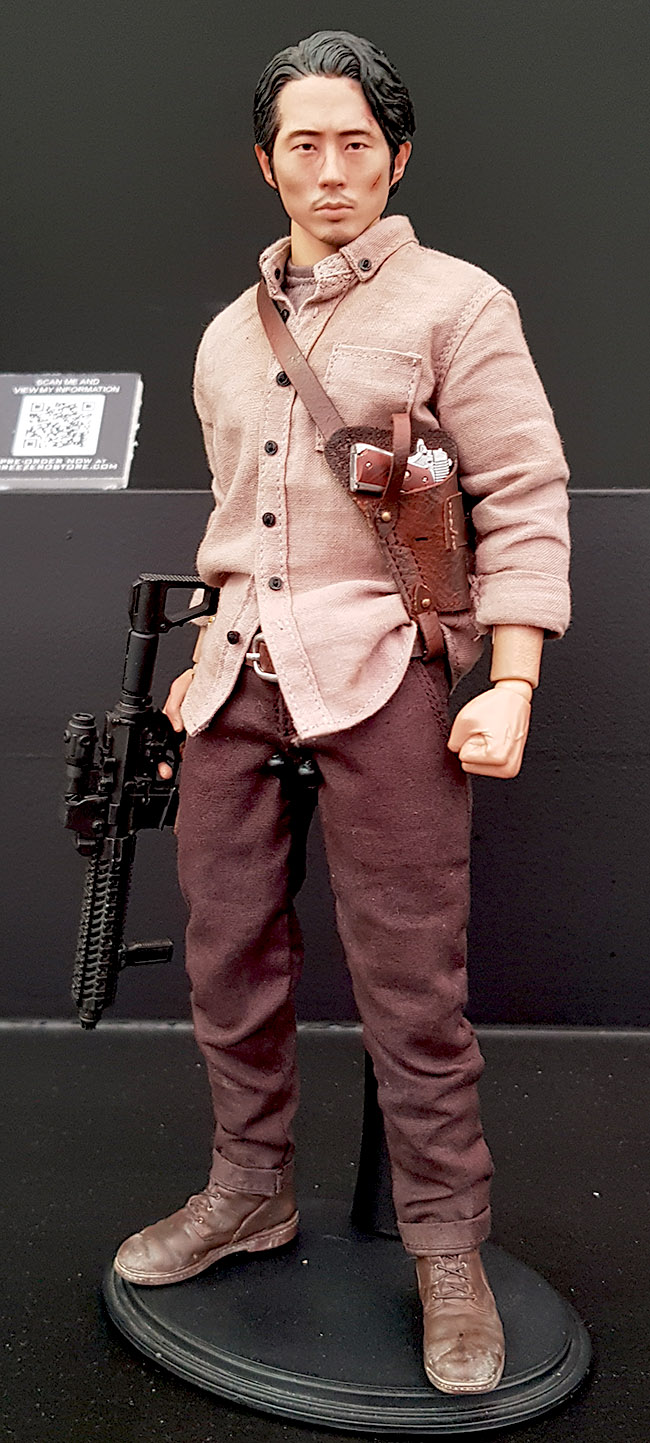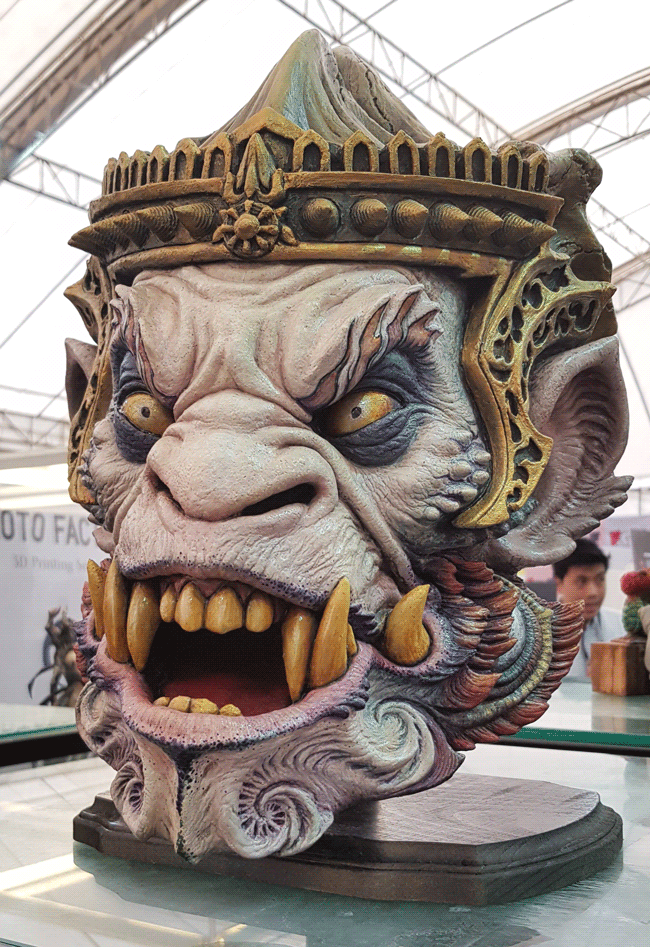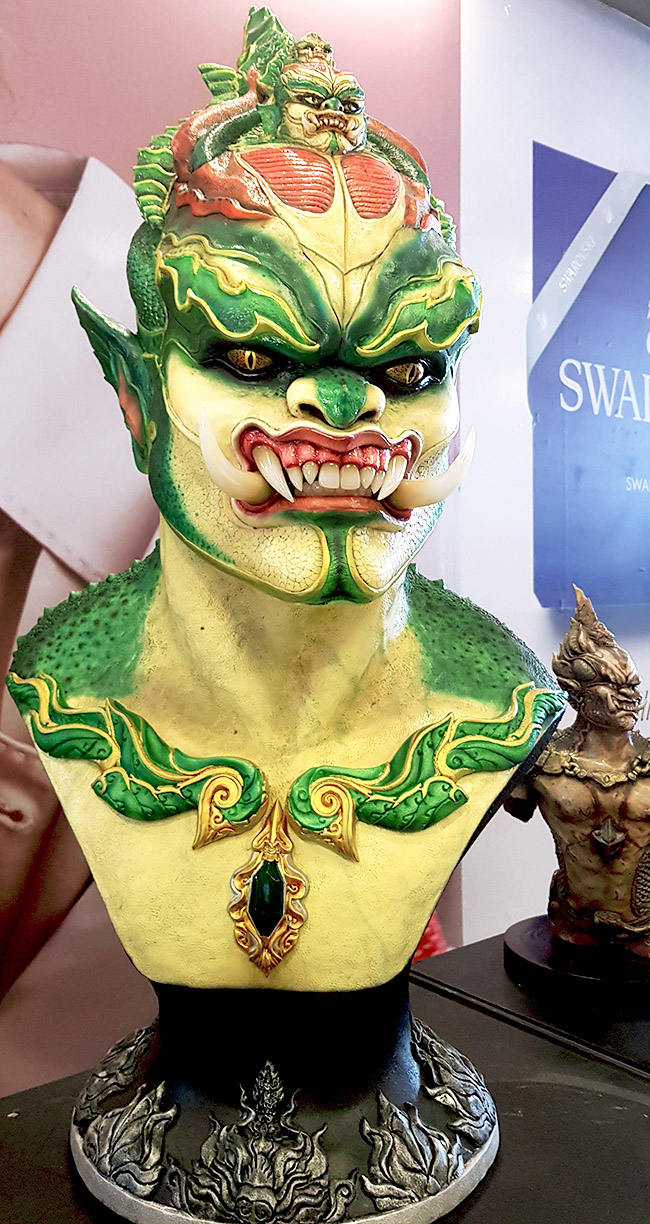The Thailand Toy Expo is such a huge event that I had to break my coverage into 3 parts of over 120 photos. I spent a weekend at Central World Bangkok & feel like I didn't get to see all the displays. There are so many toys I had to leave out because I wanted to bring you only the very best. I've added bonus TTE2018 photos on my Tumblr. Scroll down to get your geek on!
JT Studio - 6 pics
Jei Tsang 曾弘傑 (Taiwan)
▶ Check out more from TTE2018 in PART 1 & PART 3A special shout out to The Toy Chronicle & Toys R Evil, these 2 dedicated designer toy blogs are awesome at covering the often complicated & overcrowded toy market. I used these sites to source & confirm the creators of many of the sculptures, even though I get business cards & take photos of artists' display info it is still sometimes difficult to know the designer or company producing the toy.
▶ See my Monkey King Art Collection
I enjoy art toys because I see them as low-brow sculptures, but I'm not a collector or deep dive fan. It's strange that most hardcore toy fans don't see themselves as art collectors. I think it's because the high-end art market is filled with investors & art snobs who aren't necessarily passionate about the creation itself, but rather the notoriety of the artist & projected appreciation of the asset.
ThreeZero & 3A (Hong Kong) - 5 pics
I've been a casual fan of art toys for about 2 years. It has been a complicated journey trying to wrap my head around this fandom. Unlike most 2D art, there can be several people involved in the creation of a single product.
1. The process begins with a concept, which can be from a dedicated toy designer employed by a large toy company or a well known artist working in other media contracted for a one-off run. The big companies like ThreeZero can license popular characters from anime & movies which appeal to a broader fan base.
Grits FX (Thailand)
2. The next step is the design & sculpt which is often done by 2 separate artists. Side note, this critical element is wildly underappreciated & too often uncredited by larger production companies, although this is slowly changing as more toy connoisseurs demand to know the creators.
3. After that a prototype needs to be produced, if there are complex moving parts, such as with mech dolls, an engineer might be involved.
4. Then the sculpture requires painting, like comic books there are a few artists who specialize in adding color & sometimes even fabric clothing to the toys. Many companies release an unpainted version for hobbyists to decorate themselves. These "blanks" can also be sent to other famous artists for group shows or limited editions, such as Kidrobot's "Dunny" or MediCom Toy's "B@erbrick". All of this further complicates crediting the creators of the toy.
5. Finally the toy needs to be mass produced & distributed to specialty toy shops & online retailers. Smaller indie toy studios often do limited run lotteries & mail their final product directly to collectors.
It astonishes me that so many independent toy makers manage to create high quality art toys with fewer than 5 people involved, some go at it completely solo.
Kotobukiya (Japan) - 2 pics
Jozio by Lee JiSu (Korea) - 4 pics
Dinsai Studio (Thailand) - 2 pics
Toy Qube - 2 pics
Dragon King by kaNO
AstroBoy - Tezuka Productions
Artist: Keith Ing
by Prasith Pohnwechumnuay | Facebook
Sentinel Toys (Japan) - 3 pics
Ultraman: 12" Hero's Meister Series
1000 Toys (Japan) - 2 pics
Studio Sundowner - 2 pics
VTSS Toys - 4 pics
● Check Out My Pinterest: Art Toys Pinboard












































